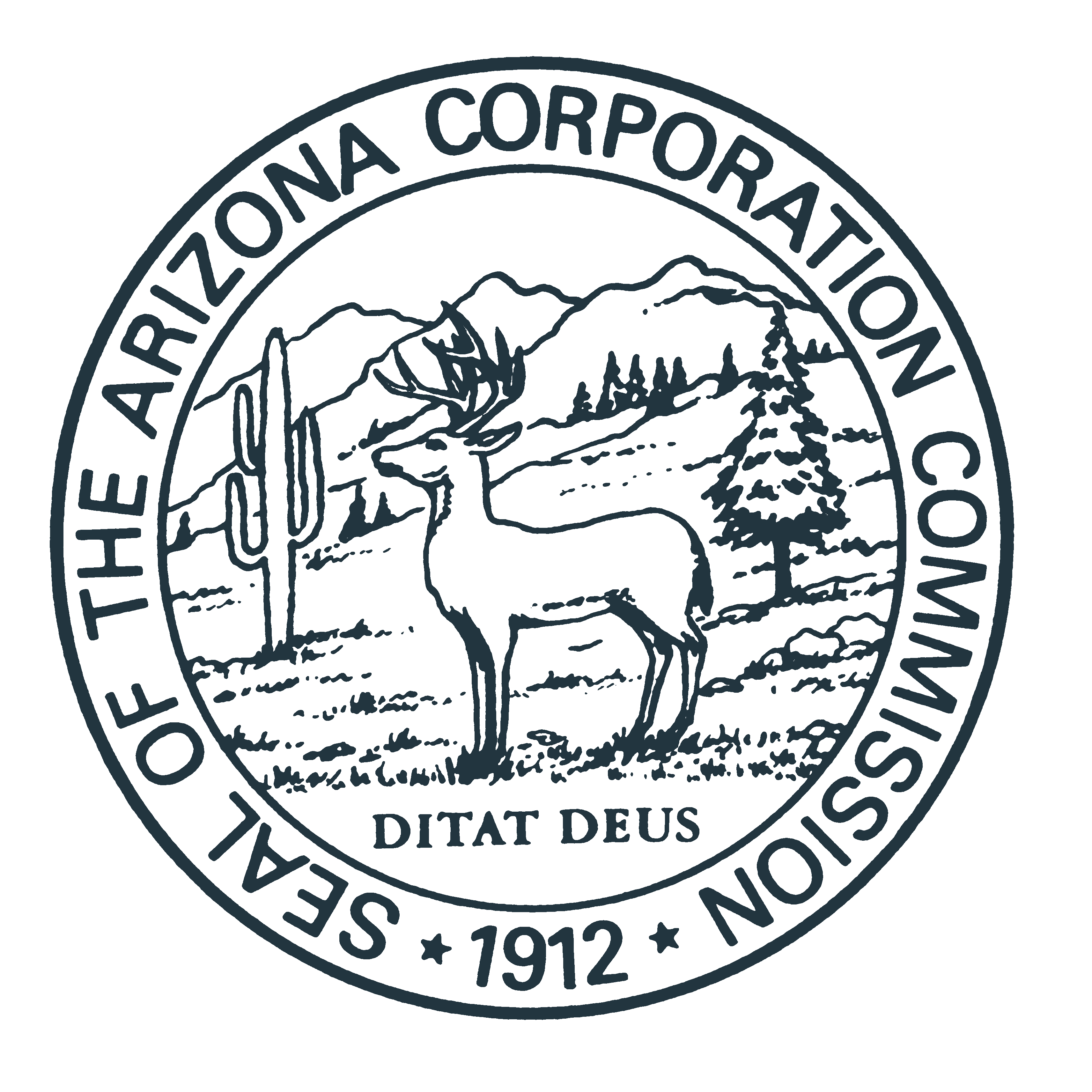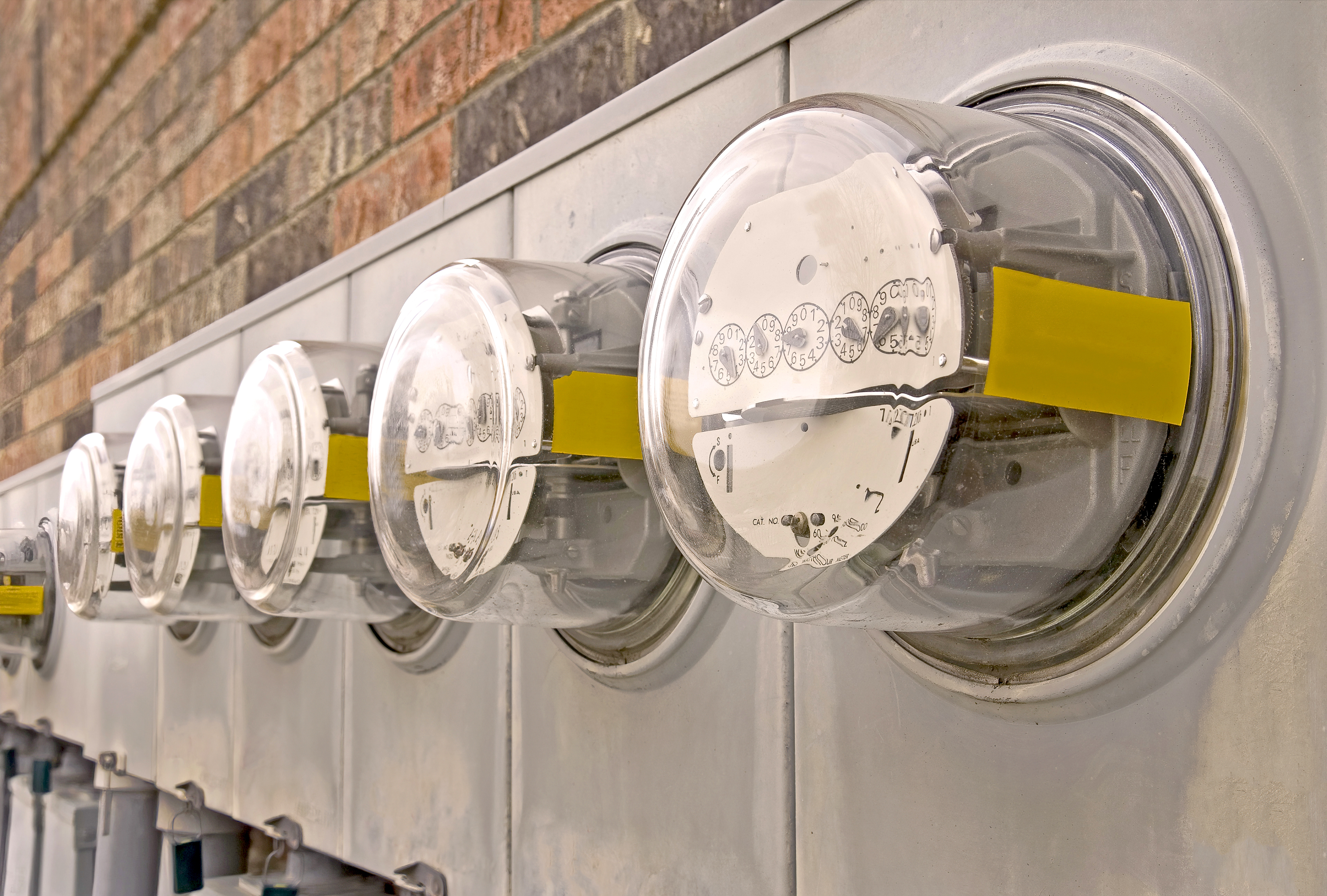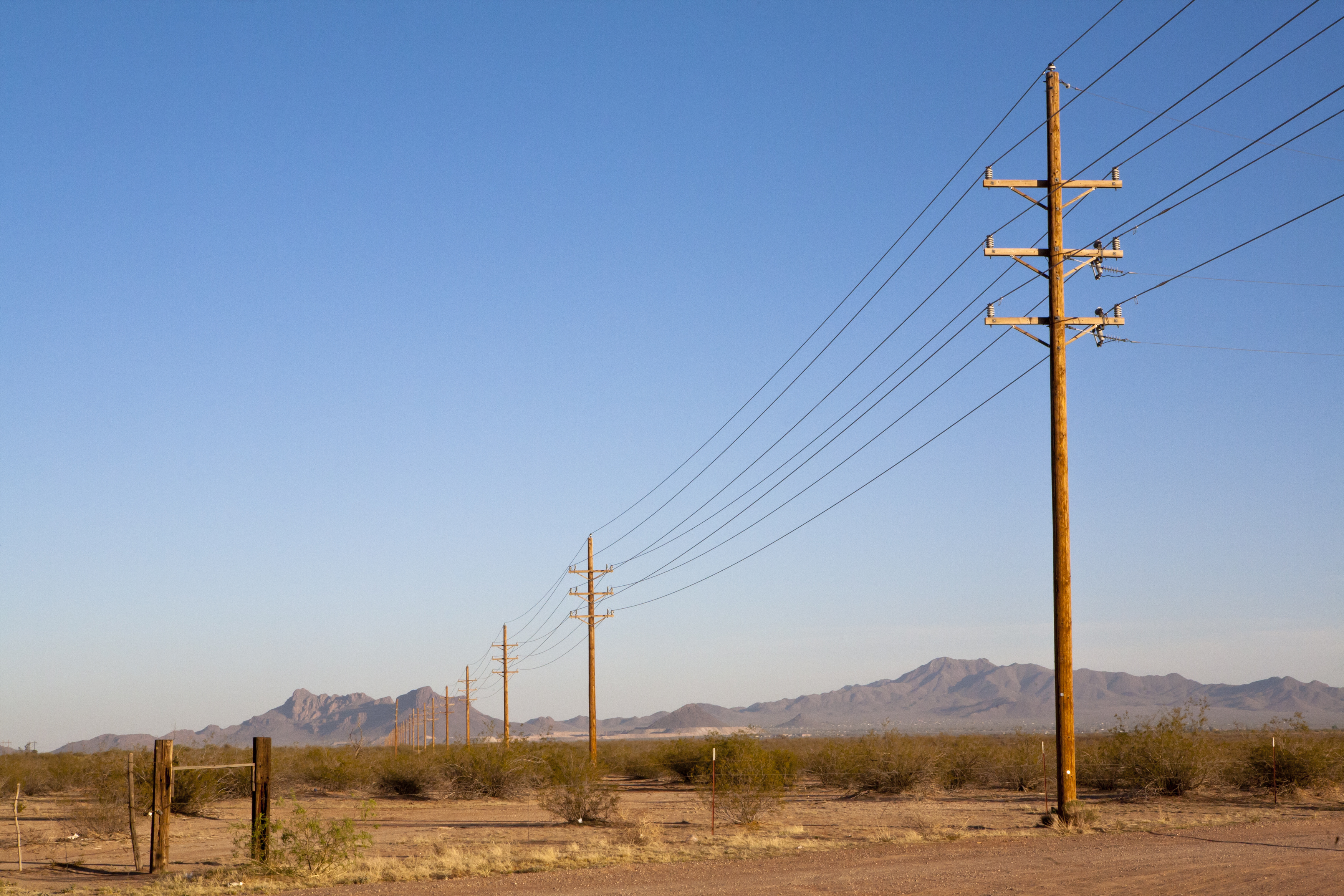Below are definitions of terms commonly used in the electric industry. This list is not designed to be comprehensive, but rather to give a basic definition. Some of these terms have specific regulatory or technical definitions as spelled out in law or statute. In those situations, the legal or technical definition takes precedence
A document granting operating authority to utilities.
All aspects of retail electric service except those services specifically defined as "Noncompetitive Services" pursuant to Corporation Commission Rules R14-2-1601(29) or noncompetitive services as defined by the Federal Energy Regulatory Commission.
NOTE: See Article 16 Retail Electric Competition
The rate at which power is delivered during any specified period of time. Demand may be expressed in kilowatts, kilovolt-amperes or other suitable units.
The utility lines operated at distribution voltage, which are constructed along public roadways or other bona fide rights-of-way, including easements on customer's property.
The delivery of electricity to a retail consumer through wires, transformers, and other devices that are not classified as transmission services subject to the jurisdiction of the Federal Energy Regulatory Commission. Distribution service excludes metering services, meter reading services and billing and collection services, as those terms are used herein.
A company supplying, marketing or brokering at retail any competitive services pursuant to a Certificate of Convenience and Necessity approved by the Corporation Commission.
A ruling by the Commission that requires any company serving electricity to an end-user to generate a portion of that electricity through renewable technologies such as wind, solar, biomass generators or landfill gas recovery.
An independent regulatory agency within the US Department of Energy that, among other things, regulates interstate oil, natural gas and power transmission sales.
The production of the actual megawatts of electricity or purchase of electricity through the wholesale market.
A program offered by an Electric Service Provider where customers elect to pay a rate premium for renewable generated electricity.
Electric service that is subject to interruption as specified in the utility's tariff.
A unit of power equal to 1,000 watts.
The electric energy equivalent to the amount of electric energy delivered in 1 hour when delivery is at a constant rate of 1 kilowatt.
The lines and equipment necessary to extend the electric distribution system of the utility to provide service to additional customers.
A meter for measuring or recording the flow of electricity that has passed through it at a single location where said electricity is distributed to tenants or occupants for their individual usage.
A unit of power equal to 1,000,000 watts.
An entity providing meter reading service. (See R14-2-1601(25))
All functions related to the collection and storage of consumption data.
An entity providing meter service.
All functions related to measuring electricity consumption, including installation and repair of meters, but not including meter reading.
The instrument for measuring and indicating or recording the flow of electricity that has passed through it.
All functions related to measuring electricity consumption.
The point where facilities owned, leased or under license by a customer connect to the utility's facilities.
The rate of generating, transferring or using electric energy, usually expressed in kilowatts.
Service to customers using electricity for domestic purposes such as space heating, air conditioning, water heating, cooking, clothes drying and other residential uses and includes use in apartment buildings, mobile home parks and other multiunit residential buildings.
The territory in which the utility has been granted a Certificate of Convenience and Necessity and is authorized by the Commission to provide electric service.
The line extending from a distribution line or transformer to the customer's premises or point of delivery.
Standard Offer Service:
Bundled service offered by a utility or Utility Distribution Company to all consumers in the utility's or Utility Distribution Company's service territory at regulated rates including metering, meter reading, billing and collection services, demand side management services including but not limited to time-of-use, and consumer information services. All components of Standard Offer Service shall be deemed noncompetitive as long as those components are provided in a bundled transaction under Corporation Commission Rules, R14-2-1606 (A).
The documents filed with the Corporation Commission which list the services and products offered by the utility and which set forth the terms and conditions and a schedule of the rates and charges for those services and products.
Refers to the transmission of electricity at high voltage to retail electric customers or to electric distribution facilities as defined by the Federal Energy Regulatory Commission (FERC) or Arizona Corporation Commission.
Electric service elements provided and priced separately, including, but not limited to, such service elements as generation, transmission, distribution, must-run generation, metering, meter reading, billing and collection, and ancillary services. Unbundled Service may be sold to consumers or to other Electric Service Providers.
The electric utility entity regulated by the Commission that operates, constructs, and maintains the distribution system for the delivery of power to the end user point of delivery on the distribution system.
For more definitions of electric terms, click here for a helpful guide published by AARP.
The public service corporation providing electric service to the public in compliance with state law, except in those instances set forth in Corporation Commission Rules, R14-2-1612 (A) and (B).
Public Information
Map of Arizona's Electric Companies
List of Regulated Electric Companies
Address:
1200 W. Washington St,
Phoenix, AZ 85007
Phone:
Phoenix Office:
(602) 542-4251
Tucson Office:
(520) 628-6550
Toll Free In-State Only:
1 (800) 222-7000
Email:
PLEASE NOTE - The use of inappropriate or threatening language when submitting a complaint or comment may result in your item not being docketed and/or no action taken.

Arizona Corporation Commission
Phoenix Office
1200 W. Washington Street
Phoenix, AZ 85007
> Commissioners
> Executive Director
> Legal
> Utilities
> Docket
> Hearings
Arizona Corporation Commission
Phoenix Office
1300 W. Washington Street
Phoenix, AZ 85007
> Administration
> Safety
> Corporations
> Securities
Arizona Corporation Commission
Tucson Office
400 W. Congress Street
Tucson, AZ 85701
> Corporations
> Hearings
> Utilities




